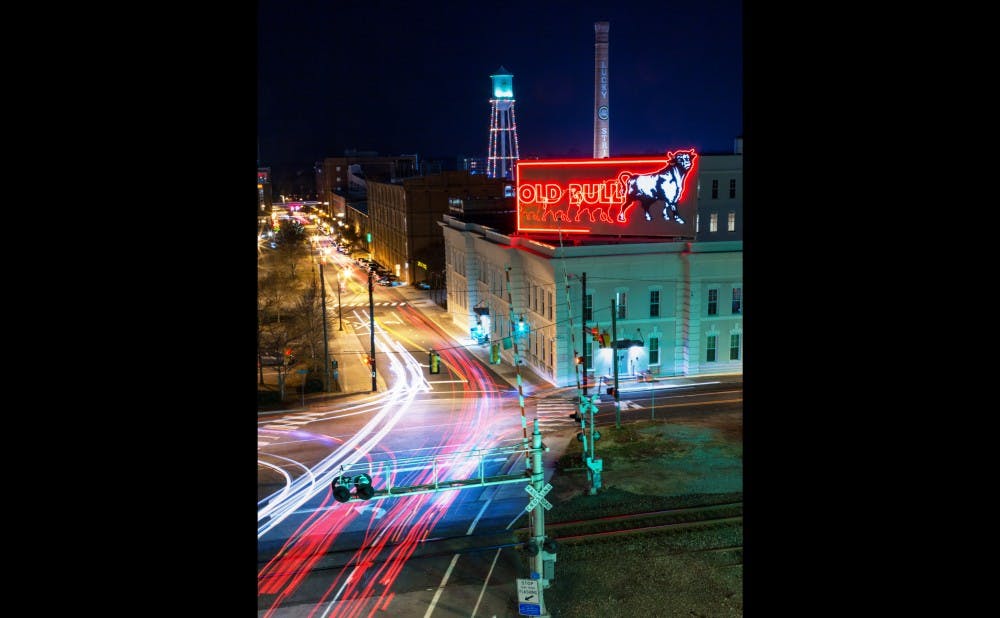As the ongoing affordable housing crisis in Durham continues to strain residents, experts called for local efforts to help improve the situation at a panel Tuesday.
Gentrification is a critical part of the ongoing housing crisis in Durham, panelists said.
“I define gentrification as someone taking something that’s yours and selling it back to you for double the price,” said Jesse McCoy, James Scott Farrin lecturing fellow and supervising attorney at the Duke Law Civil Justice Clinic.
A lack of investment is at the foundation of gentrification, said panelist Melissa Norton, project director of Bull City 150. The Duke-based initiative from the Samuel DuBois Cook Center on Social Equity studies the racial and economic injustices in Durham over the past 150 years.
As downtown witnesses major investment, Norton said, other areas have not been meaningfully invested in. This led to their gentrification.
“Evictions are devastating, and in Durham there’s no place to go," Norton said. "It’s such a deep structural problem.”
McCoy said as one in every 28 Durham residents received an eviction notice in 2015-2016 and long-term residents are kicked out of increasingly expensive leased homes, the first step is to “stop the bleeding.”
The second step is to encourage long-term investment so that Durham residents can stay here.
The number of neighborhoods with high poverty rates is increasing in Durham and the growth of its racial inequity has also outpaced that of the state and country, McCoy said.
“As more and more black revenues and businesses are closing down…you see that trickle into neighborhoods,” he added.
It is problematic that Durham residents living in areas with low valuations have to bear an additional tax as a result of people of color living there, known as a "black tax," said Henry McKoy, lecturer and director of entrepreneurship at North Carolina Central University.
McKoy also mentioned that the investment in Durham is excessively return-oriented. Panelists then turned their attention to Durham’s largest landowner and employer—Duke.
Duke should do more to help alleviate the housing crisis because it it tax exempt, Norton said.
McKoy said that Duke tends to lease many of its Durham properties, to invest in white areas and to work with white developers. He called on students to challenge Duke's practices.
“The voice by which the student body could call out Duke is really valuable,” McKoy said.
McKoy praised the Duke Law Civil Justice Clinic’s work of aiding residents in Durham who are targeted for eviction, which McCoy works with, and the Durham Community Land Trustees, which Norton is a member of.
“The people who do the best work are the people who can educate the community about the barriers that are stopping them and how to overcome them,” McCoy said.
McKoy emphasized the importance of understanding Durham, when speaking with the Chronicle after the panel.
“I think it’s important to get a context of the community you’re in," he said. "It gives a different level of commitment to the community.”
Senior Trey Walk, who moderated the panel talk, echoed McKoy.
Get The Chronicle straight to your inbox
Sign up for our weekly newsletter. Cancel at any time.
“I think we’ll start to see some progress when more Duke students define Durham as being there home and start to think about 'what do I owe this community because I live here and it is my home,’” he said.
Correction: This article was updated Friday afternoon with the correct name of the Durham Community Land Trustees, which was previously written as the Durham Land Trust. The Chronicle regrets the error.

